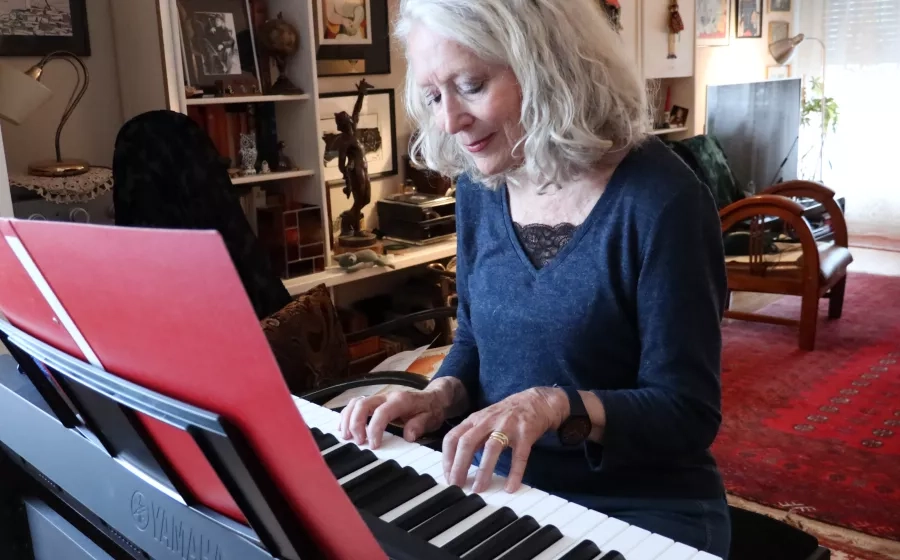Age‐related cognitive decline is a major impediment to healthy aging, independence, and well‐being. Incrusted beliefs that aging is solely defined by decline prevent many elderly persons from learning new skills. Our innovative approach proposes learning new skills in healthy elderly after retirement.
We will investigate musical training-driven benefits for aptitudes traditionally designed to decline during normal aging: working memory, executive function, hearing in noise, auditory attention, and fine motor skills, as well as for brain morphology and brain function.
The study follows a longitudinal design, offering intensive piano training versus "musical culture" training (active listening and learning about music) to groups of retired nonmusician elderly (n~150, 60 in Geneva and 90 in Hannover, Germany), over 12 months, with psychometric and cutting‐edge neuroimaging data collected at baseline, 6 and 12 months after training onset, and after a delay of 6 months.
Unveiling specific positive effects of music training and analytic music listening on age‐related cognitive decline can contribute to maintaining mental health and quality of life of older adults, decrease the need for assisted living, and promote such approaches on a large scale in the community.
We expect positive effects from intensive music training on age‐related cognitive decline for working memory and executive function. Functional and structural brain plasticity may show in gray and white matter in different motor, auditory and associative brain areas, especially those involved in working memory and executive functions, particularly in the piano group. Moreover, benefits for hearing in noise and auditory attention may show in both groups, and for fine‐motor skills in the piano group. Finally, the sense of well‐being may improve in both piano and musical culture groups.
Page web HES-SO du projet




